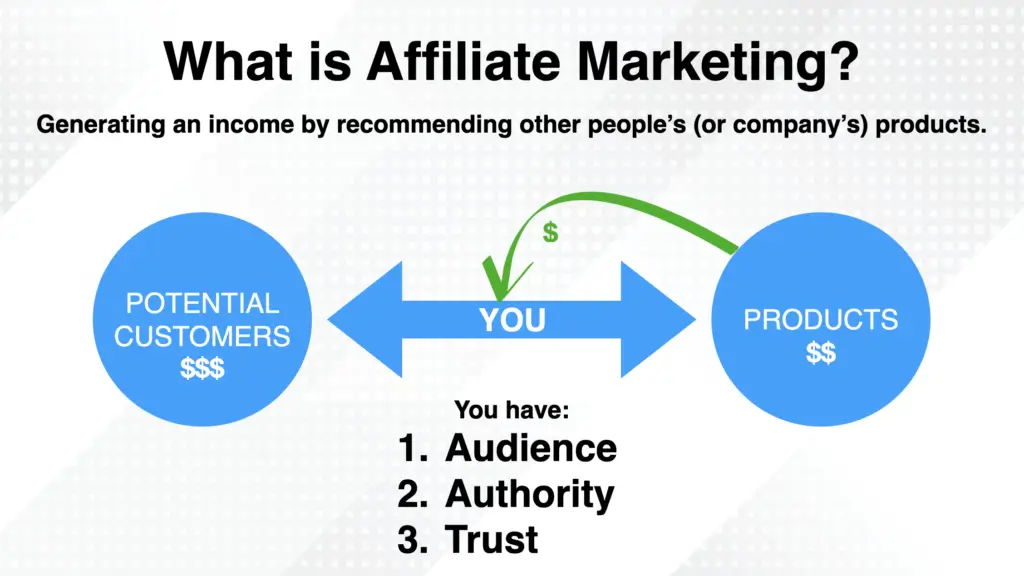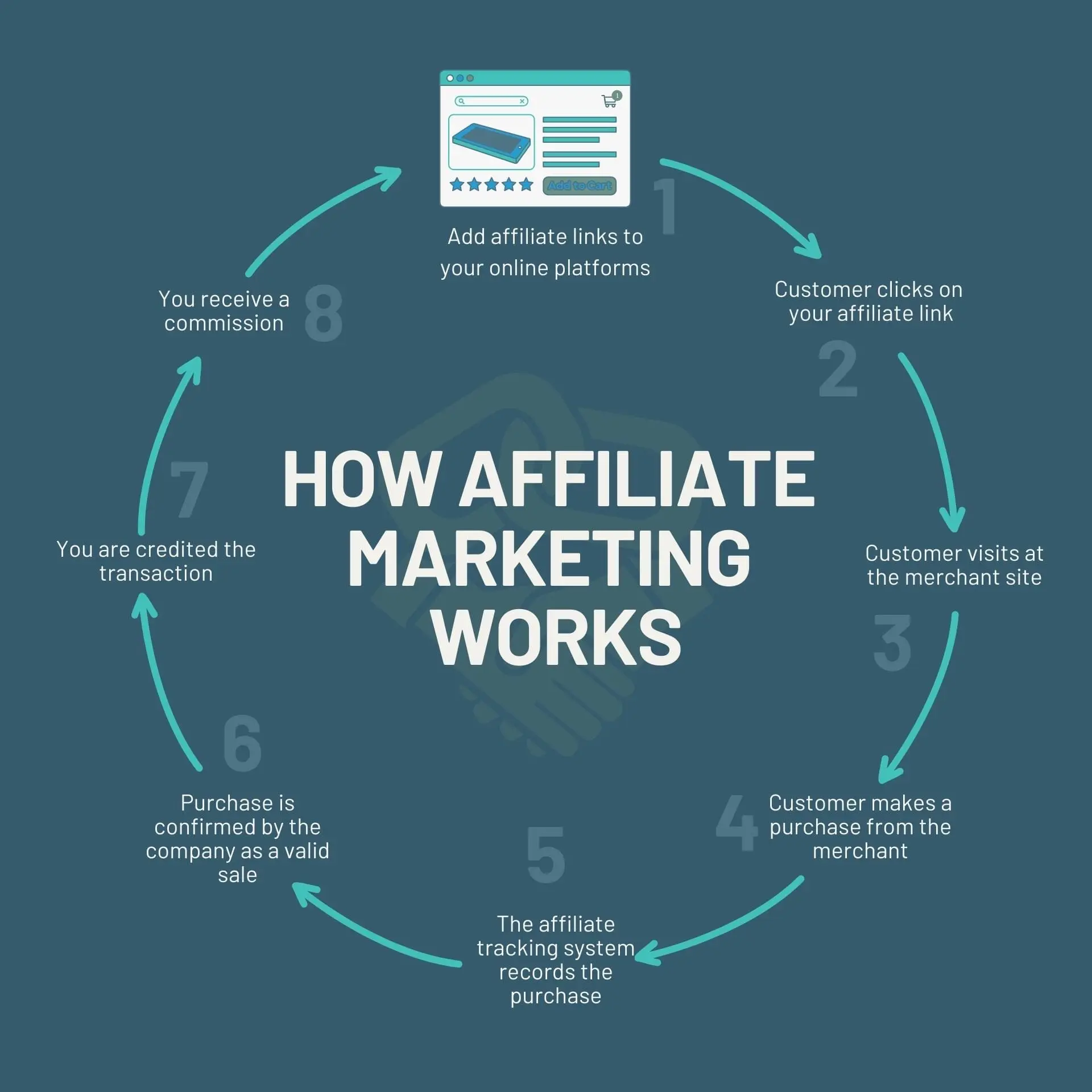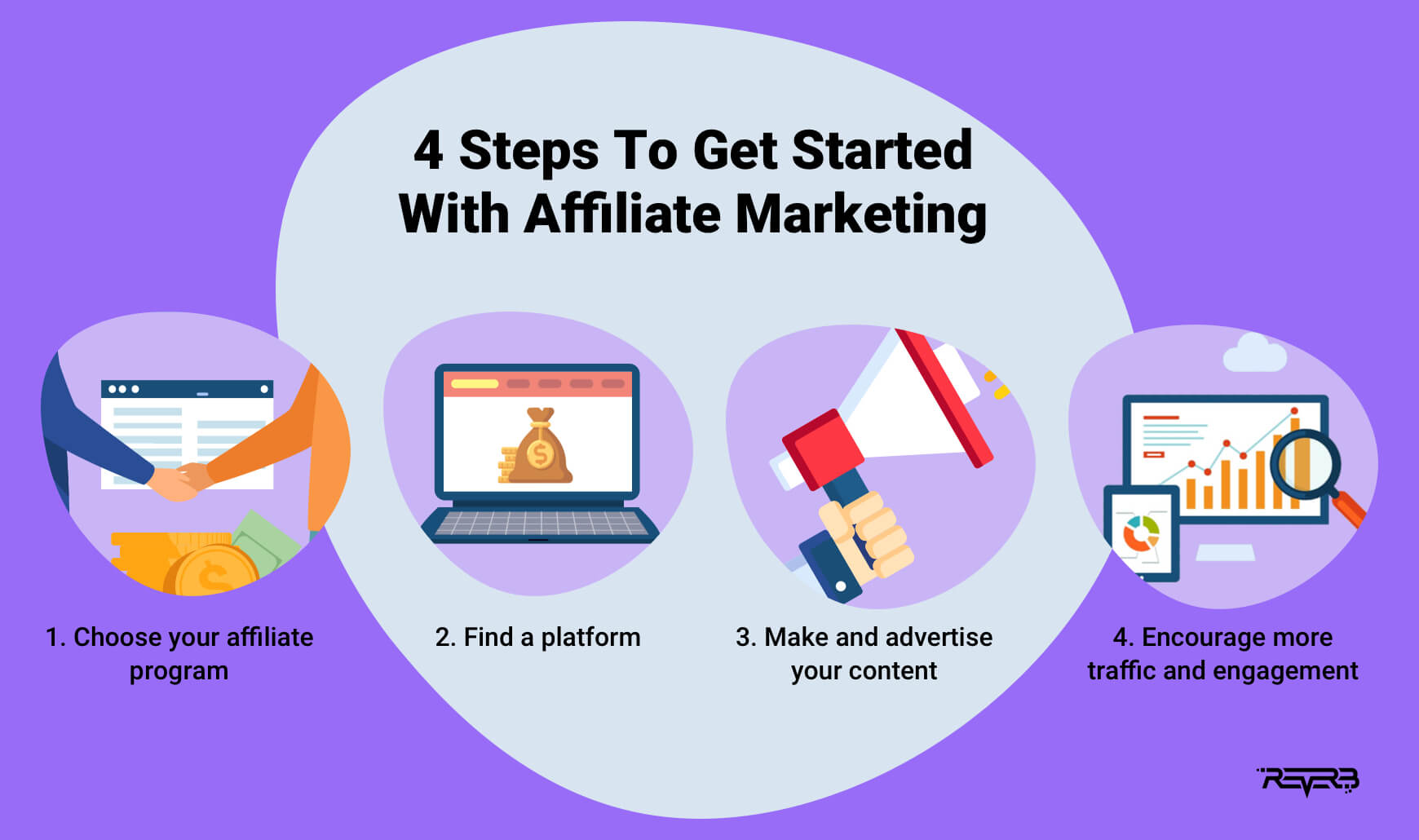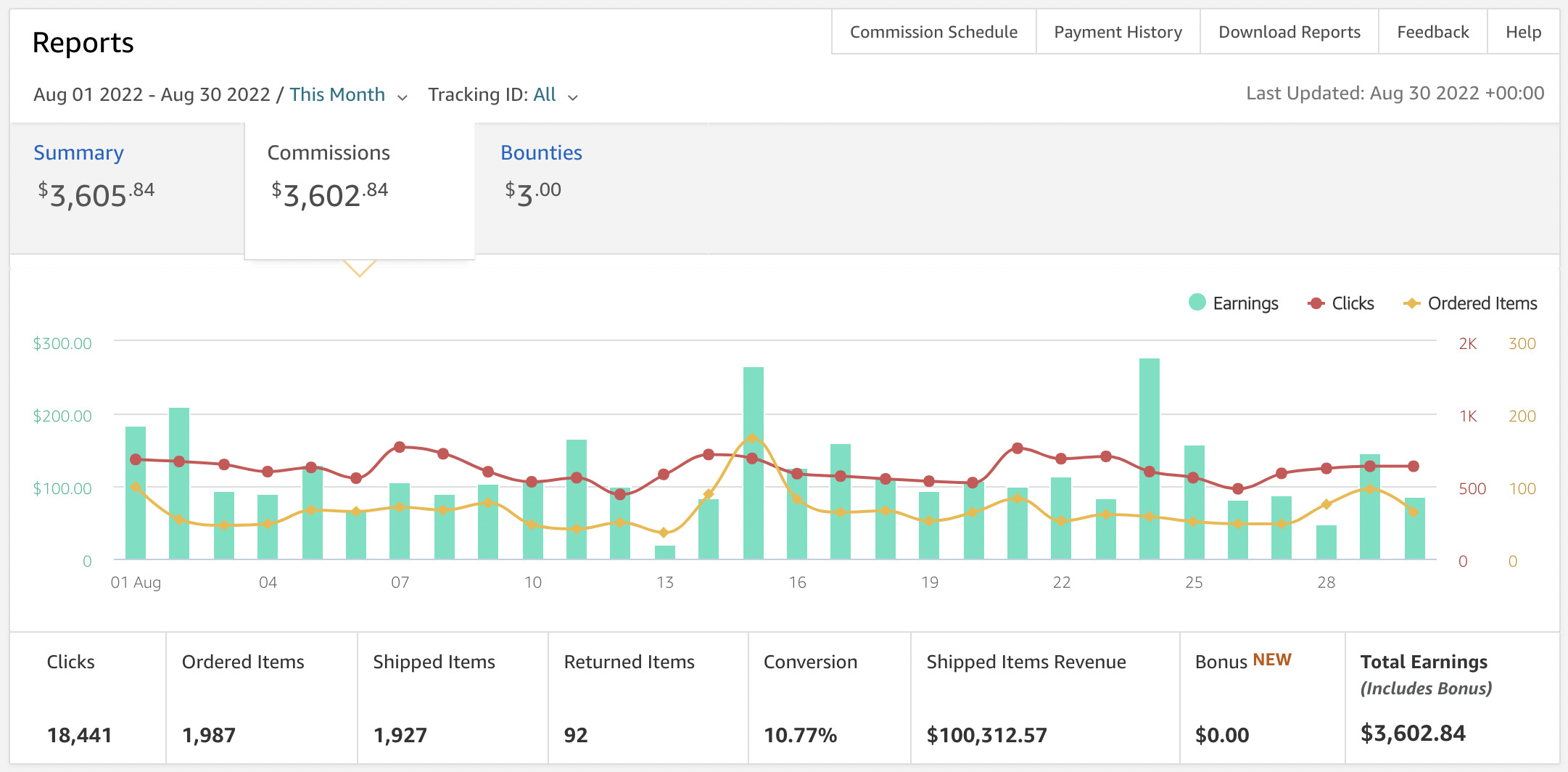Top Affiliate Marketing Posts

Beginner’s Guide to Affiliate Marketing: Learn How to Get Started in 2024
Beginner’s Guide to Affiliate Marketing: Learn How to Get Started [2024]
Introduction:
Welcome to the Beginner’s Guide to Affiliate Marketing! If you’re looking to explore a dynamic and potentially lucrative online business model, you’ve come to the right place. Affiliate marketing offers individuals and businesses alike the opportunity to earn passive income by promoting products or services from other companies.

In this comprehensive guide, we’ll walk you through everything you need to know to get started in affiliate marketing in 2024. Whether you’re a complete beginner or someone looking to refine their strategy, we’ll cover the fundamentals, best practices, and tools you’ll need to succeed in this exciting field.
Disclosure: This post contains affiliate links, meaning that if you purchase something through the links below, I will receive a commission at no cost to you. Learn more.
Affiliate marketing is one of the most popular ways to make money online. It involves promoting products or services and earning a commission for every sale made through your referral link. This guide will take you through the basics of affiliate marketing and highlight some of the easiest ways for a total beginner to get started.
People new to making money online often gravitate towards affiliate marketing due to its perceived low barrier to entry.
The reason this is possible is because anyone can begin affiliate marketing without having to spend any money.
What is Affiliate Marketing?

Affiliate marketing is a type of performance-based marketing where businesses reward affiliates (publishers or partners) for each visitor or customer brought by the affiliate's own marketing efforts. Affiliate marketing allows individuals or businesses (affiliates) to earn commissions by promoting other companies' products or services. It works by tracking referrals through affiliate links and rewarding affiliates based on the desired actions completed by the referred visitors or customers. This model benefits both the business, which gains increased sales through third-party marketing efforts, and affiliates, who can generate income without creating their own products or services.
How Does Affiliate Marketing Work? (The Basics)
Affiliate marketing involves two main parties: advertisers (or merchants) who have products or services to sell, and affiliates (or publishers) who promote these products in exchange for earning a commission on successful sales or actions. Affiliates receive unique tracking links from advertisers, which they use to promote products through various online channels like websites, social media, or email. When a visitor clicks on an affiliate's link and makes a purchase or completes a desired action on the advertiser's site, the affiliate earns a commission. This model allows advertisers to expand their reach and pay affiliates based on performance, while affiliates can earn income without needing their own products.

Through affiliate networks, you can gain access to various merchant’s affiliate programs, which are agreements outlining commission rates and payment structures.
What stands out in affiliate marketing is its performance-based nature. You are compensated strictly based on the results generated, which means your income reflects the effectiveness of your promotion.based on the results generated, which means your income reflects the effectiveness of your promotion.
How to Get Started with Affiliate Marketing for Beginners (My 4-Step Blueprint)
Affiliate marketing can be a great way to earn passive income, but getting started can feel overwhelming. Here’s a simple 4-step blueprint to help beginners get started:

Step 1: Choose Your Niche
Why it matters: Focusing on a specific niche allows you to target a particular audience more effectively. It also helps establish you as an authority in that area.
How to choose a niche:
Passion and Interest: Select something you’re passionate about or interested in. This will make the process enjoyable and sustainable.
Market Demand: Use tools like Google Trends, Amazon Best Sellers, or keyword research tools to identify niches with high demand.
Monetization Potential: Ensure the niche has products or services that people are willing to buy and that have affiliate programs. Popular niches include health and fitness, technology, personal finance, and lifestyle.
Step 2: Research Affiliate Programs
Why it matters: Not all affiliate programs are created equal. Some offer better commissions, support, and tracking than others.
How to find affiliate programs:
Affiliate Networks: Platforms like Amazon Associates, ClickBank, ShareASale, and CJ Affiliate offer a wide range of products and services you can promote.
Direct Affiliate Programs: Many companies have their own affiliate programs. Check the websites of the products or services you want to promote for affiliate links or contact them directly.
Consider Commission Rates and Cookies: Look at the commission rates and cookie duration (how long after a click you’ll still get credit for a sale).
Step 3: Create a Content Platform
Why it matters: You need a place to promote your affiliate products. A content platform allows you to attract and engage your audience.
Options for content platforms:
Blog: Create a blog where you write articles, reviews, and tutorials related to your niche. WordPress is a popular choice for building blogs.
YouTube Channel: Create video content. Product reviews, unboxings, and how-to guides can attract viewers and direct them to your affiliate links.
Social Media: Use platforms like Instagram, Facebook, Twitter, or Pinterest to share content and affiliate links.
Email Marketing: Build an email list and send newsletters with valuable content and affiliate promotions.
Step 4: Produce High-Quality Content
Why it matters: High-quality content attracts and retains visitors, builds trust, and encourages them to click on your affiliate links.
How to create high-quality content:
Solve Problems: Focus on solving your audience’s problems and providing value. Answer common questions and offer useful tips.
Be Honest and Transparent: Disclose your affiliate relationships and always recommend products you genuinely believe in.
SEO Optimization: Use keyword research to optimize your content for search engines. This will help drive organic traffic to your site.
Promote Your Content: Share your content across social media, engage with your audience, and use SEO strategies to increase visibility.
Why Should Beginners Choose Affiliate Marketing?
Low Initial Investment
Why it matters: Starting a business usually requires significant upfront capital, but affiliate marketing allows you to get started with minimal investment.
No product creation: You don't need to create your own product or service, which can be costly and time-consuming.
Low startup costs: Building a website or starting a blog involves minimal costs, especially with affordable hosting and domain options.
Easy to Learn
Why it matters: The barrier to entry is low because there are numerous resources available to learn affiliate marketing.
Online courses and tutorials: Many free and paid courses can teach you the basics of affiliate marketing.
Community support: Online forums, social media groups, and communities are full of experienced marketers willing to share their knowledge and advice.
Flexibility and Convenience
Why it matters: Affiliate marketing offers a flexible way to earn money, making it suitable for people with different lifestyles and commitments.
Work from anywhere: As long as you have an internet connection, you can work from anywhere in the world.
Set your own schedule: You can work on affiliate marketing part-time or full-time, depending on your availability and goals.
Passive Income Potential
Why it matters: Affiliate marketing can provide a stream of passive income, allowing you to earn money even when you're not actively working.
Evergreen content: High-quality content can continue to generate traffic and sales long after it's created.
Recurring commissions: Some affiliate programs offer recurring commissions for subscription-based products or services, providing ongoing income.
Scalability
Why it matters: You can grow your affiliate marketing business significantly without a proportional increase in work.
Diverse income streams: Promote multiple products across various niches to diversify your income.
Automation tools: Use tools for email marketing, social media management, and SEO to automate and scale your efforts.
No Customer Support
Why it matters: Handling customer service can be time-consuming and challenging, but with affiliate marketing, this responsibility falls on the product owner.
Focus on marketing: You only need to focus on driving traffic and conversions.
Avoid hassles: You don't deal with returns, complaints, or customer queries, which simplifies your operations.
Access to a Wide Range of Products
Why it matters: You have the flexibility to choose from a vast array of products and services to promote.
Choose profitable niches: Select niches that are both interesting to you and have high demand.
Experiment and adapt: Test different products and strategies to see what works best for your audience.
Performance-Based Earnings
Why it matters: Your earnings are directly tied to your performance, providing motivation to improve and succeed.
Unlimited earning potential: There’s no cap on how much you can earn; your income grows as you improve your marketing skills and expand your reach.
Direct feedback: You can quickly see which strategies are working through measurable results like clicks, conversions, and commissions.
Access to Global Markets
Why it matters: Affiliate marketing allows you to reach a global audience, expanding your potential customer base.
Cross-border promotions: Promote products and services to audiences worldwide without geographical limitations.
Leverage global trends: Tap into trends and demands in different regions to maximize your earning potential.
How Much Money Can a Beginner Expect to Make with Affiliate Marketing?
When I first began my journey in affiliate marketing over six years ago, I faced significant challenges and struggled to earn any money. However, through consistent effort and skill-building over time, I now generate a six-figure income annually.
My experience demonstrates that a beginner's potential income in affiliate marketing can vary greatly – from nothing at all to life-changing amounts. Like any business, achieving success requires substantial and sustained effort.

Affiliate marketing is a long-term endeavor. Patience and persistence are crucial.
The only real limitations are your marketing capabilities and the volume of targeted traffic you drive.
By committing to improving your skills and scaling up qualified traffic sources, the income potential for beginners can be limitless over the long run.
My own journey is proof that with maximum effort, affiliate marketing can grow from a reliable side hustle into a full-fledged career.
Other Important Things a Beginner Affiliate Marketer Should Know
1.Understanding Your Audience
Research: Know who your target audience is and what their interests are. This helps in selecting the right products to promote.
Engagement: Build a relationship with your audience through content that addresses their needs and interests.
2. Choosing the Right Affiliate Programs
Reputation: Select programs from reputable companies with good track records.
Commission Structure: Understand how and when you'll be paid. Look for programs with favorable commission structures.
Support and Resources: Some programs offer better support, training materials, and resources to help you succeed.
3. Content Quality
Value-Driven Content: Focus on creating high-quality, valuable content that educates, entertains, or solves a problem for your audience.
SEO: Learn the basics of Search Engine Optimization (SEO) to help your content rank higher in search engine results, driving organic traffic to your site.
4. Traffic Generation
Diverse Sources: Use a mix of traffic sources like SEO, social media, email marketing, and paid advertising.
Targeting: Ensure that your traffic is targeted and relevant to the products you are promoting.
5. Building Trust and Credibility
Transparency: Be honest about your affiliations and disclose when you are using affiliate links.
Consistency: Regularly update your content and engage with your audience to build trust over time.
Final Thoughts....
Affiliate marketing offers beginners an excellent entry point into the online business world. However, to build a successful strategy, you must first grasp the fundamentals of affiliate marketing and how it functions.
To kickstart your journey, follow the tips and advice outlined in this blog post. By doing so, you'll lay a solid foundation for your affiliate marketing efforts and begin to see results quickly. Don't hesitate any longer—dive into the world of affiliate marketing today!
Leave Reply...
© 2024 AI Profits Engine
